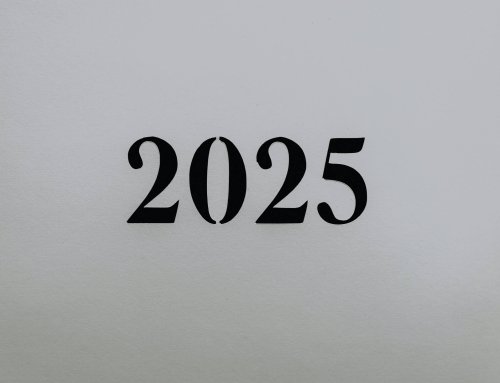How foodservice companies can build stronger, more inclusive talent pipelines
Executives from Chipotle Mexican Grill, Bloomin’ Brands, The Coca-Cola Company and more share top tips on employee recruitment, engagement and retention.
Fern Glazer | Sep 23, 2021
Among the many hard truths that have come to light during the ongoing COVID-19 pandemic and in the wake the recent social unrest and police violence that ended in the loss of Black lives, is that the foodservice industry has much work to do to create more diverse, equitable and inclusive organizations.
“Restaurant executives, business leaders in general, have a specific response to the work in diversity, equity and inclusion,” said James H. Pogue Jr., a diversity, inclusion and bias consultant and founder of JP Enterprises. “A lot of leaders haven’t been able to take the ball across the finish line.”
While almost no foodservice brand is doing nothing to address bias in hiring, training and promotion, Pogue says there is far more the industry’s leaders can — and should — do.
“More than move the needle, leaders have a great opportunity to kick the door down,” he said.
Pogue will further explore these issues next month as moderator of the opening keynote panel at Nation’s Restaurant News’ inaugural CREATE: The Future of Foodservice event, Oct. 4-6 in Denver.
He will be joined by panelists Marissa Andrada, chief diversity, inclusion and people officer, Chipotle Mexican Grill; Sheilina Henry, group vice president diversity and inclusion, Bloomin’ Brands and Tanika Cabral, senior vice president and chief of staff, chief customer office, The Coca-Cola Company; in an Oct. 4 session titled “Widening the Talent Pipeline: Positioning Brands for the Future.”
Register now to secure your spot at CREATE and get more insights directly from these and many more restaurant leaders.
Ahead of the event, the panelists shared their insights on how foodservice leaders can build stronger, more engaged teams, and effect positive change within their own organizations.
Listen, listen, listen
How do you know what today’s employees want, need, and where the gaps are in your organization? According to the panelists, the key is listening.
“[Leaders need to] listen to their people giving everyone an equal voice — regardless of their level — and celebrating that voice,” said Bloomin’ Brands’ Henry. “Their perspective is their reality.”
To facilitate listening, Bloomin’ Brands hosts a series of a series of “Courageous Conversations,” where brands set the agenda and topics around a different set of identities and allow individuals to contribute at all levels.
“Afterward, no matter what level you were at, you had a level of empathy that wasn’t there before,” said Henry.
The events of the last 18 months transformed Chipotle’s once monthly chit-chats — virtual meetings where executives and employees periodically connected to share what was on their minds — into weekly listening sessions.
“The culture is about seeing [employees], hearing them,” said Chipotle’s Andrada. “Not only about the job, but about what it is they’re dealing with in life.”
Similarly, listening is a key pillar in terms of diversity, equity, and inclusion at The Coca-Cola Company, according to Cabral. The company began hosting listening sessions in relation to the recent social justice issues, which then inspired employees to break off into smaller affinity groups.
“[We’re] now in a position to have some authentic, but tough conversations,” Cabral said. “To create the safety and the space to have these conversations and the grace on the other end … seeking understanding and gaining perspective. That’s the platform we tried to create.”
And while it may be scary at first, Cabral said, “you have to do it scared.”
But listening alone isn’t enough.
“You walk away with things you didn’t know,” Cabral said. “The key is to make sure it’s actionable.”
Deliver on employees’ high expectations
By listening, these companies have learned that what employees expect from foodservice organizations has changed significantly in the last 18 months.
“People expect a sense of humanity … expect you to be compassionate,” Henry said. “If you really care about me, then you should care about [what I care about]. It’s not acceptable to be oblivious to the world around me.”
Beyond compassion and, of course, higher wages, employees are looking for things such as health and safety, access to health care, flexibility, and growth opportunities.
One way Chipotle is cultivating a culture where everyone can thrive, Andrada said, is by developing transparent pathways to success.
“No secrets,” she said. “If you want to move up, we will help you move up.”
Yet, perhaps even more critical — and challenging — than attracting a diverse workforce is keeping one.
“We saw a [demand for a] type of flexibility that in my 24, 25 years in the business I’ve never seen,” Cabral said. “Employees don’t just want that, they demand that. If they don’t get it, guess what? They’ll leave.”
While things like flexibility, more consistent schedules for hourly workers, and diversity at every level, especially at the top, are important to workers, Andrada said recent research shows that the reason employees stay with a company has to do with its purpose.
“The No. 1 reason an employee chooses to stay at a company? The company is purpose driven and living it,” Andrada said. “When you have that, [and] attract a workforce that believes in what you believe, they will stay.”
Don’t wait to begin
You don’t have to be a big, well-resourced foodservice company to cultivate an environment where everyone can thrive. Here are 5 things restaurants operators can focus on right away to start making progress now:
- Know what you stand for: “Get real clarity on who you are and what you stand for and include your employees,” Chipotle’s Andrada said.
- Get buy in from leadership: “No matter what size [the company], it requires leadership to commit to the team,” said Bloomin’ Brands’ Henry. “That can be tough. Leadership may be reluctant.
- Redefine how you measure success: Companies are often focused on setting demographic goals and achieving quotas, Pogue noted, but “maybe that’s not the right target.” Instead, he said, get leaders to “increase the level of diversity acumen. The rest will flow.”
- Reflect your market: “One of the best ways — and maybe one of the easiest — to expand your thinking is to simply have someone on your team that reflects the market you serve,” said The Coca-Cola Company’s Cabral.
- Improve the employee experience: “There will be a time when folks say I want to select an employer. They’re going to have choices,” said Pogue. “You want to be relevant to them.”
Source: https://www.nrn.com/workforce/how-foodservice-companies-can-build-stronger-more-inclusive-talent-pipelines





